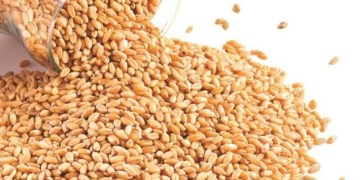MALAYBALAY CITY (MindaNews / 14 Jan) – The rubber industry is an emerging industry in Bukidnon but small rubber farmers need to improve quality of production to be able to command a good price, an official from the Department of Trade and Industry (DTI) here said.
Junar Merla, senior trade and industry development specialist at DTI-Bukidnon, said local producers need to improve their practices to increase quality of latex, the natural extract from the rubber tree that is highly in demand in the Philippines and other countries.
Bukidnon rubber producers, Merla added, are looking at the big market in China as they increase production. But he said in one of DTI’s assessments that poor quality is one issue confronting the industry.
He cited that there is a need to train and improve the skills of rubber tappers and handlers to ensure good quality of latex.
Merla said traders expressed dismay that they found rubber cup lumps sold to them by local suppliers mixed with “foreign objects.” He cited that traders complained of some stocks mixed with soil or even battery solution to increase weight.
He said small local producers do not know that the scheme is doing a boomerang as traders become hesitant in buying locally produced rubber, or want to buy it at a cheaper price.
Buying stations in Bukidnon and North Cotabato, Merla noted, are willing to pay P36 to P48 per kilo of good quality cup lumps but some would pay only P26 to P30 due to the problem.
One more problem in the local rubber industry, he added, is the lack of an industry consolidator – one that can process rubber cup lumps to rubber crepe, which is the form in demand by tire producers like Yokohama in Pampanga.
He said at the moment a mix of locally-based and mobile traders buy cup lumps. But Merla said small rubber farmers can command a bigger price if they have the option to sell the stocks or have these processed for a fee and be the one to sell rubber crepe.
He added that the Central Mindanao University, which runs a processing facility, can be the consolidator.
But Merla stressed this is just a secondary concern compared to the need to improve quality.
He said CMU and Mountain View College have the biggest rubber plantations in the province, which as of 2013 has a total of 6,000 hectares planted to rubber.
Merla said DTI’s intervention to address the problem of quality is to organize the small rubber farmers and help them to improve their skills. He added that DTI organized a rubber production (budding and tapping) seminar in 2013 where about 50 farmers were trained.
On January 26, the DTI is also holding a follow up training with safety measures as new input in preparation for a competency assessment with the Technical Skills and Development Authority (TESDA). The training, in cooperation with CMU, will be held free of charge at the university’s Farmers’ Training Center.
– mindanews.com


























